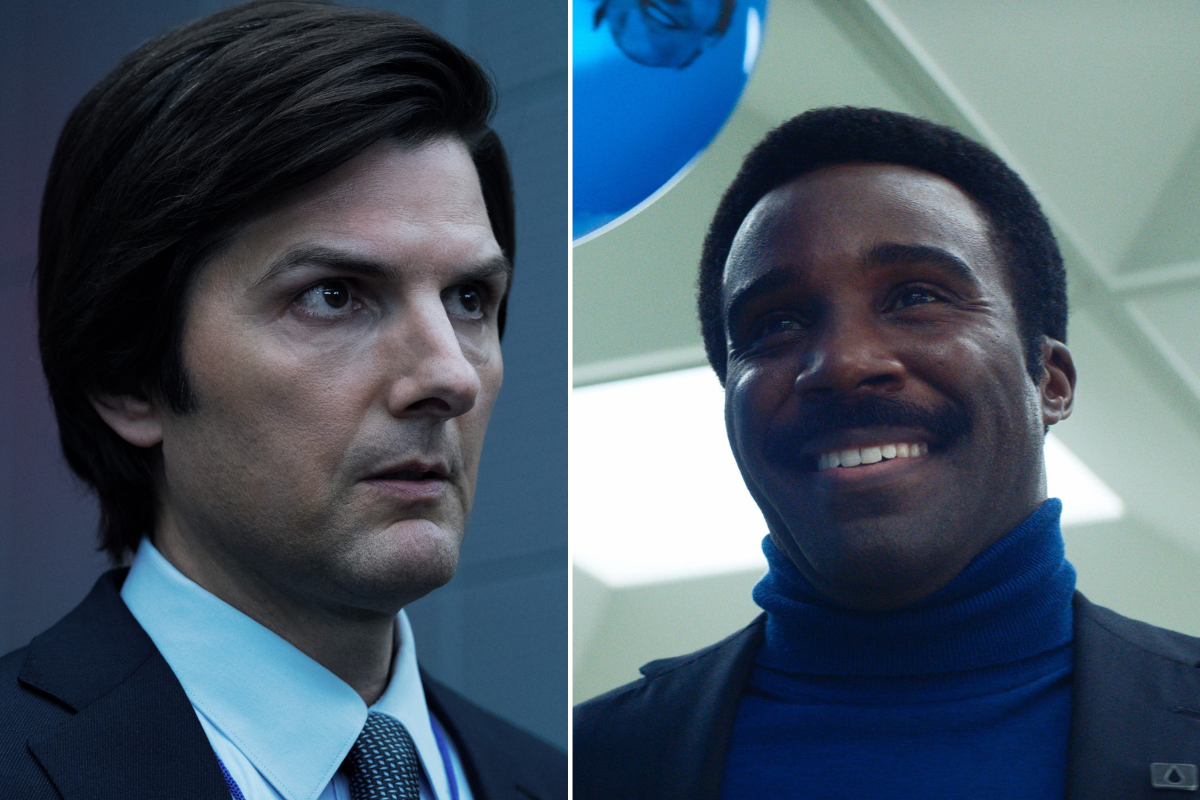A woman noticed a striking resemblance between JPMorgan's office perks and the show 'Severance'
Lumon would be proud.

Adam Scott and Tramell Tillman in Severance
RIP remote work? Now that we're 4-plus years removed from the peak of the COVID-19 pandemic, more and more companies are beginning to mandate that employees return to the office, on a full or part-time basis. JPMorgan Chase is just one of the latest (and biggest) names to make the move. Starting March, the company announced, all employees must return to the office five days per week. Their CEO even ditched the policy that allowed employees to work-from-home two days per week.
To mark the occasion, and welcome everyone back, JPMorgan is planning to soon unveil a massive $3 billion, 2.5 millions square foot tower on New York's famous Park Avenue. The building will house 14,000 workers and feature state of the art architecture and technology.
The United State's largest bank is loading up its new corporate headquarters with perks to help employees transition back to office life. Some of the perks are great and truly enticing. Others are... questionable, to say the least.
Grace Tallon on LinkedIn noticed that some of the benefits of working in the JPMorgan Office seemed like they were yanked right out of one of the most popular current TV shows on the planet: Severance
If you don't know it, Severance is a psychological thriller on Apple TV that doubles as a dark and biting satire of corporate office culture and capitalism. Employees at a mysterious company called Lumon are "severed" — meaning their brains, memories, and personalities are literally split in half. While at work, they are a different person and retain no memories when they leave the office every night. In return for their sacrifice and for hitting key milestones, the employees receive ludicrous rewards like short dance parties with their boss, melon parties with carved watermelons, and handfuls of balloons. Employees are also expected to marvel at bizarre pieces of art that line the hall, featuring stoic images of Lumon's revered (and more than a bit creepy) founders.
Conversely, JPMorgan's new tower will feature 19-restaurants with at-your-desk delivery, an Irish pub, and on-site physical therapy and yoga. But that's not all!
Tallon notes, however, that JPMorgan is also trying to entice employees with things like "personalized climate" in rooms and offices, a "signature scent" that wafts through the halls and somehow reinforces the brand, and, get this, even a "corporate art collection" that celebrates the company's history and values. Be more on the nose next time, will you JPMorgan? That's to say nothing of design elements that support worker's circadian rhythms and coffee machines that learn your favorites over time.
"Let’s stop pretending this is about connecting and doing better work," she writes.
Read Tallon's full post below on the striking similarities:
Commenters agreed that the perks came off more than a little tone deaf.
While some folks defended the corporation for doing their best to make employees feel cared for and taken care of, others didn't quite see it that way.
"the climate in my own home office is just right. Along with my own coffee, artwork, lighting (window wide open), and other perks and it cost me zero dollars to drive there and I don't have to wear shoes! Way out of touch," wrote Alix Z.
"Those perks sound more like a high-tech museum experience than actual employee benefits. Instead of a 'signature scent,' how about giving employees real reasons to feel good about coming to work?" said Diana Alayon
"Working at home perks: My own candle collection, curated to suit my preferences, Coffee and tea on tap, from our favourite brands, Comfortable cushions and blankets to help regulate my temperature at my desk, A variety of lighting options, ranging from warm white lamps to 'the big light', Freedom to work anywhere I want, such as my office desk, sofa, kitchen table or a coffee shop near by, Personalised art with photos of family and pictures we enjoy, Working space decorated to my own specifications, Plenty of spaces nearby for fresh air and dog walks" wrote Eloise Todd in a mic-drop comment.
Hey, I'm not totally naive. I do think there is something positive about working together in-person with your colleagues. And sure, if I'm going to be there, I'd love to have delicious lunches and free yoga classes available to me. But to take away even the option of occasionally working from home and duct-taping over it with an algorithm that tracks my coffee order and temperature preferences, and filling the halls with strange paintings that move when I walk by? It kind of loses the thread, and it's exactly the kind of thinking that the creators of Severance are so good at skewering.
It turns out that what people really want out of their jobs is actually pretty simple. They want fair pay, autonomy, some level of flexibility, and good benefits. Perks are nice — even the kind of weird ones — but they can only go so far. It remains to be seen if companies that dictate back-to-the-office edicts are willing to follow through on the things that really matter.
One anonymous worker reiterated as much when they told the NY Post: "I'm looking forward to some of those little amenities — but I'm still not down for having to go to the office five days a week."







 Rihanna Nails GIF
Rihanna Nails GIF

 Good luck trying to catch a gazelle.
Good luck trying to catch a gazelle. Chickens will eat just about anything.
Chickens will eat just about anything. There's actually a big difference between horses and zebras besides just the stripes.
There's actually a big difference between horses and zebras besides just the stripes. Stop Right There The End GIF by Freeform
Stop Right There The End GIF by Freeform